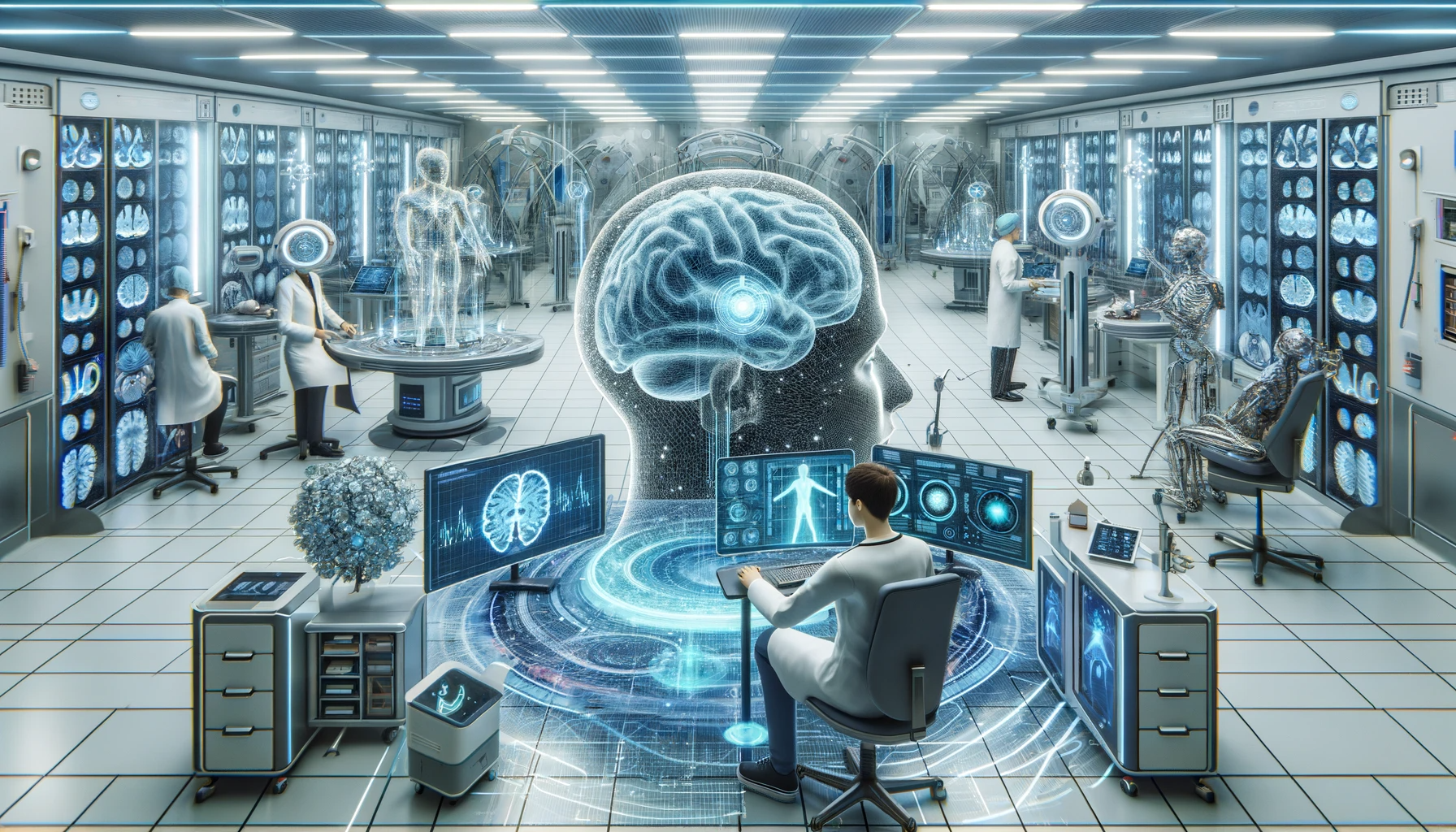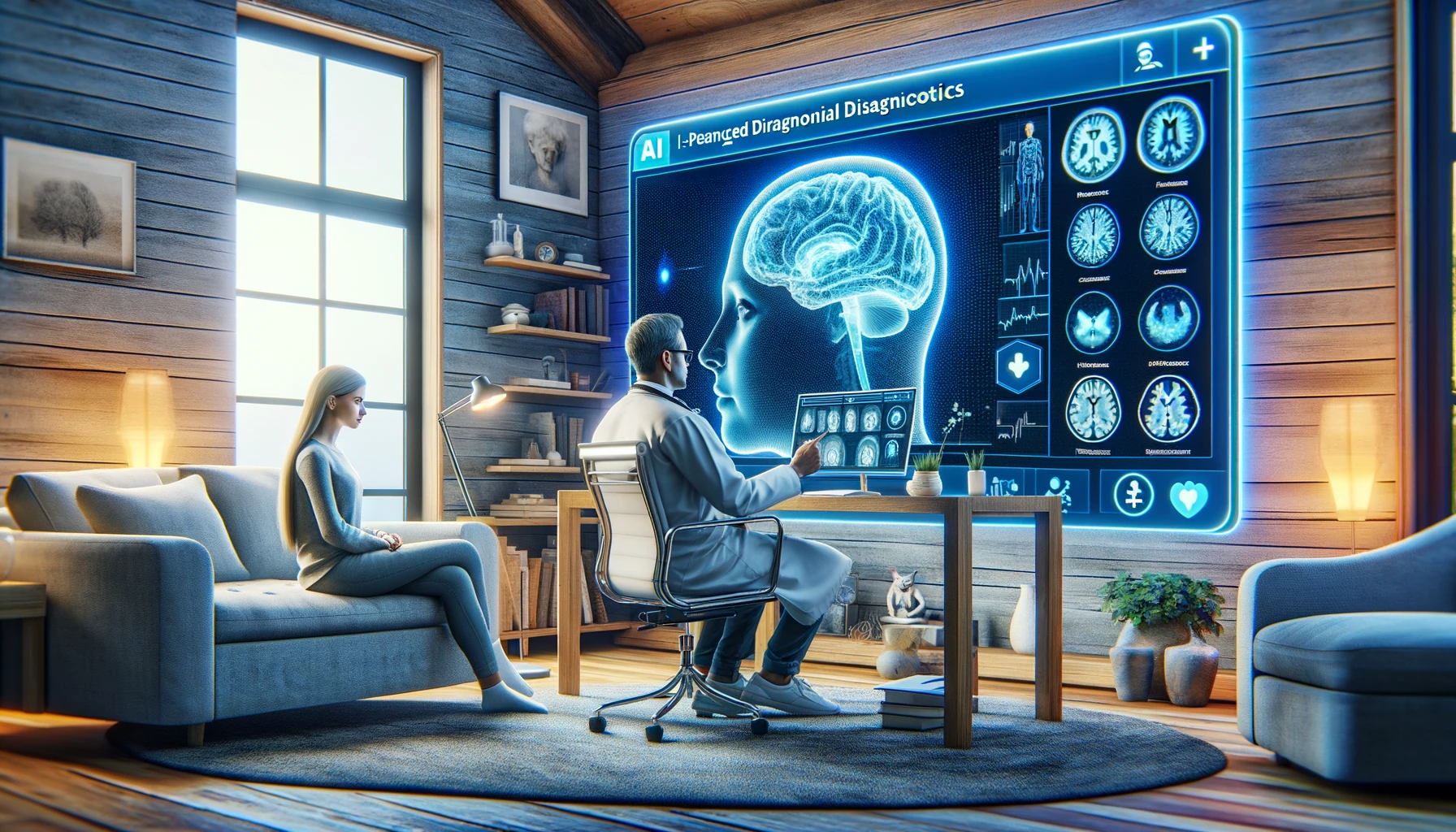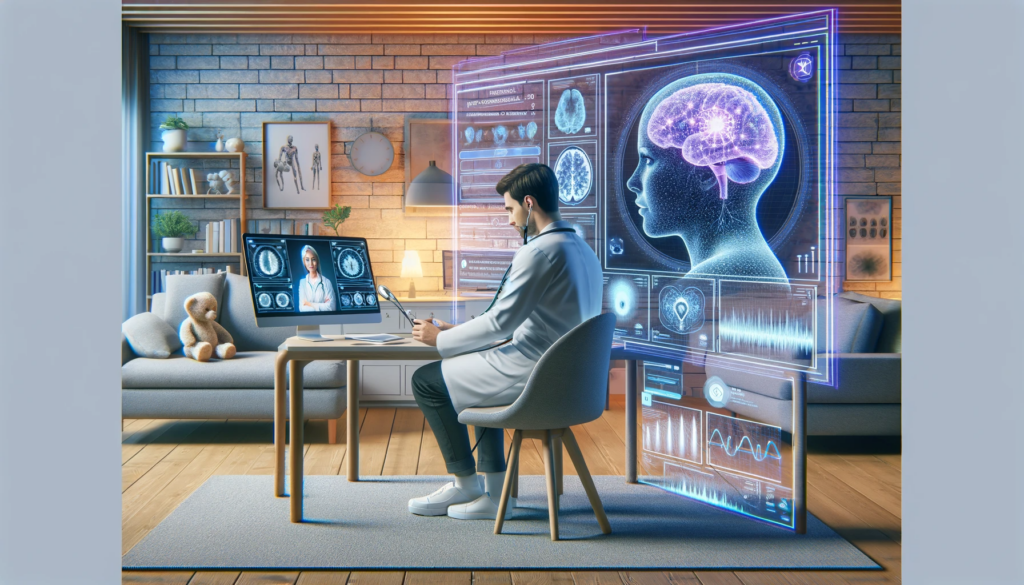In the realm of healthcare, one of the most formidable challenges we face today is the early detection and treatment of neurological disorders. These conditions, which include Alzheimer’s disease, Parkinson’s disease, multiple sclerosis, and others, afflict millions of individuals worldwide, posing a substantial burden on both patients and healthcare systems. The impact of neurological disorders extends far beyond the affected individuals; it affects families, caregivers, and society as a whole.
The urgency of addressing neurological disorders lies not only in their prevalence but also in the severe consequences of late-stage diagnoses. Late detection often limits treatment options, resulting in reduced quality of life for patients and heightened healthcare costs. The need for early detection, intervention, and effective treatment has never been more critical.
Enter the transformative power of artificial intelligence (AI). AI technologies, including machine learning and deep learning algorithms, are poised to revolutionize the landscape of neurological disorder diagnosis and treatment. In this article, we embark on a journey to explore how AI is poised to become a game-changer in the early detection and management of neurological disorders.
The Growing Burden of Neurological Disorders
Neurological disorders, characterized by their impact on the nervous system, have witnessed a significant rise in prevalence in recent years. Conditions such as Alzheimer’s disease, which affects memory and cognitive function, have become alarmingly common, with millions of individuals worldwide affected. Similarly, Parkinson’s disease, a neurodegenerative disorder, is on the rise, and multiple sclerosis, an autoimmune condition targeting the central nervous system, continues to affect a substantial number of people.
What compounds the issue is the often late-stage diagnosis of these disorders. Many neurological conditions exhibit subtle symptoms in their early stages, making them challenging to detect. Unfortunately, diagnosis at an advanced stage severely limits the efficacy of available treatments, often resulting in mere symptom management rather than addressing the root causes.
The consequences of late diagnosis are twofold. Firstly, it reduces the quality of life for individuals living with neurological disorders, subjecting them to progressive deterioration. Secondly, it exerts an immense financial burden on healthcare systems, as advanced-stage treatments are typically more costly and less effective.
The Role of AI in Early Detection
Amidst these challenges, AI emerges as a beacon of hope. The potential of artificial intelligence to transform the early detection and treatment of neurological disorders is nothing short of revolutionary. AI, powered by machine learning and deep learning algorithms, possesses the ability to process vast datasets and identify subtle neurological disorder markers that may elude traditional diagnostic methods.
At its core, AI offers a paradigm shift in the way we approach medical diagnosis. By analyzing a multitude of factors, including medical imaging, genetics, patient records, and even lifestyle data, AI systems can identify patterns and correlations indicative of neurological disorders. This level of precision opens the door to early detection, a crucial milestone in improving patient outcomes and effectively managing these conditions.
As we delve deeper into this article, we will explore the specific ways in which AI is making early detection of neurological disorders a reality. From advancements in imaging techniques to the analysis of biomarkers and personalized treatment plans, AI is poised to play a pivotal role in reshaping the landscape of neurological disorder diagnosis and management.

Advancements in Imaging and Biomarker Analysis
The transformative power of AI in early detection becomes particularly evident in its enhancements to medical imaging techniques and biomarker analysis. Neuroimaging, including techniques like magnetic resonance imaging (MRI), computed tomography (CT) scans, and positron emission tomography (PET) scans, plays a crucial role in diagnosing neurological disorders. AI significantly improves the accuracy and efficiency of these diagnostic tools.
AI algorithms can analyze medical images with unparalleled precision. For instance, AI can identify subtle structural changes in the brain indicative of conditions like Alzheimer’s or detect abnormalities in brain scans that may signify Parkinson’s disease. This level of accuracy allows for early diagnosis when interventions can be most effective.
Moreover, AI extends its capabilities to biomarker analysis. Biomarkers are molecular indicators present in blood, cerebrospinal fluid, or even genetic material that can provide early signals of neurological disorders. AI-powered algorithms can sift through vast datasets of biomarker information, identifying patterns and deviations that might be missed by human analysis. This means not only quicker but also more accurate identification of neurological disorders in their nascent stages.
To illustrate, AI can analyze cerebrospinal fluid for specific proteins associated with Alzheimer’s disease, enabling early diagnosis. Additionally, blood tests measuring biomarkers can offer insights into conditions like multiple sclerosis long before clinical symptoms manifest.
Personalized Treatment Plans
Beyond early detection, AI extends its influence to personalized treatment plans for individuals diagnosed with neurological disorders. These conditions are complex and vary significantly from one patient to another. What works for one may not work for another. AI-driven precision medicine takes these nuances into account.
AI analyzes a patient’s medical history, genetics, lifestyle, and treatment response to craft tailored treatment plans. For example, in Alzheimer’s disease, AI can recommend specific medications or interventions based on a patient’s genetic predisposition and the progression of the disease. This personalization ensures that treatments are not one-size-fits-all but optimized for individual needs.
Moreover, AI can adapt treatment plans in real-time as it continuously monitors a patient’s progress. This dynamic approach allows for timely adjustments, ensuring that treatment remains effective. The result is not only improved patient outcomes but also a reduction in the potential side effects and costs associated with ineffective treatments.
Through personalized treatment, AI empowers healthcare providers to deliver precise interventions that target the root causes of neurological disorders, potentially slowing disease progression and enhancing the quality of life for patients.
Ethical Considerations and Challenges
While the promise of AI in neurological disorder management is undeniable, it is essential to acknowledge the ethical considerations and challenges that accompany its implementation. One of the foremost concerns is data privacy. AI systems rely on extensive patient data, raising questions about the security and responsible use of this information.
Additionally, algorithmic bias is a potential issue. AI models can inadvertently inherit biases present in their training data, potentially leading to disparities in diagnosis and treatment recommendations. Ensuring that AI systems are ethically designed and regularly audited for fairness is crucial.
The integration of AI into healthcare systems also poses challenges related to regulatory compliance and the readiness of healthcare professionals to adopt and adapt to AI-driven tools. Regulatory bodies must keep pace with AI advancements to establish clear guidelines and ensure patient safety.
Furthermore, there is a need for ongoing education and training to prepare healthcare providers for the adoption of AI technologies. A collaborative effort between technology developers, healthcare institutions, and regulatory bodies is necessary to address these challenges responsibly.

The Future of Neurological Disorder Management with AI
As we look to the future, the potential for AI to transform the early detection and treatment of neurological disorders continues to expand. Advancements in AI algorithms, increased access to patient data, and improved integration into healthcare systems offer a glimpse into what lies ahead.
AI-driven innovations will continue to refine and expand the capabilities of neuroimaging techniques, biomarker analysis, and personalized treatment plans. These developments will lead to even earlier detection and more effective management of neurological disorders.
Moreover, AI’s role in neurological disorder research will accelerate the development of novel therapies and interventions. The ability to analyze massive datasets quickly will lead to breakthroughs in our understanding of these conditions and the discovery of new treatment targets.
As AI becomes an integral part of neurological disorder management, it will reduce the burden on patients, families, and healthcare systems, offering hope for a future where neurological disorders can be detected early and managed effectively. The journey towards early detection and precise treatment is one that promises a brighter and healthier future for individuals facing these challenges.
